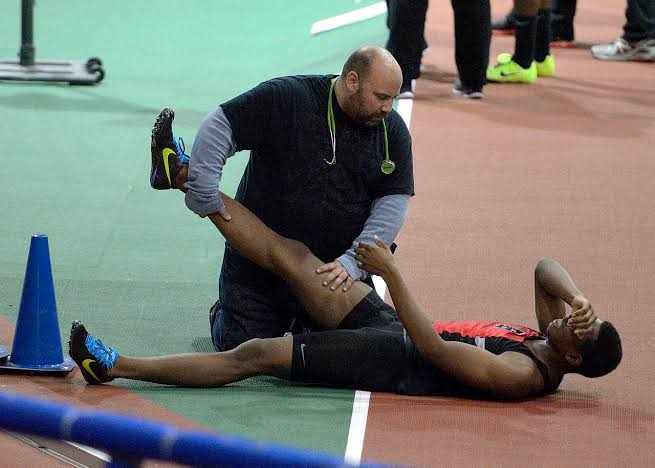
For athletes, getting injured is a sad reality that can disrupt their training, performance, and health. While recovering from an injury is very important, another issue that often gets ignored is the fear of getting hurt again. This fear can really affect an athlete’s mind, hurting their confidence and mental health. It can make them doubt their skills, value as an athlete, and even their purpose. As athletes work through the tough process of recovery, they also have to deal with the emotional struggles that come with being injured. In this blog, we’ll look at how fear of reinjury and feeling lost in their identity are connected for athletes.
Fear of re-injury is not just a mental challenge, it can greatly affect an athlete’s performance and recovery. Uncertainty about how long recovery will take, along with the pressure to perform at their best, can increase stress and self-doubt. This fear can take over an athlete’s thoughts and actions, always there in the background. It can show up as anxiety, nervousness, or avoiding certain activities. Athletes might hesitate to push themselves, worried they could get hurt again. Some may become overly cautious, constantly checking their bodies for any pain or discomfort. This fear can make it hard for them to fully focus on their training and recovery.
Fear of re-injury can make athletes feel disconnected from their sport. They might think they’re losing their skills, confidence, and sense of self. Injuries can make them question if they can ever perform at the same level again. Many athletes find their self-worth in how well they compete. When they can’t play, they may feel lost and ask, “Who am I if I can’t play?” The more they identify with their sport, the harder it is for them to cope after an injury. This self-doubt can be overwhelming, making it tough for athletes to get back on track and regain their confidence in training and competition.
The fear of re-injury can also impact an athlete’s relationships with teammates, coaches, and family. They might feel like a burden or that they’re letting others down. This feeling can lead them to pull away from social interactions, making them feel disconnected or like they no longer belong to the team. For many athletes, their sport is a big part of their identity, so this isolation can make their fear even stronger and harder to overcome. Additionally, the pressure to return to competition can increase the fear of re-injury. Athletes may feel like everyone is watching them closely—coaches, teammates, and fans—and expecting them to perform well, even if they’re still recovering. This pressure can create a sense of urgency, pushing athletes to rush back into competition before they are fully ready. This can lead to even more anxiety and stress, making it difficult for them to focus on recovery. Overall, the combination of fear, isolation, and pressure can make it challenging for athletes to feel confident and supported as they work through their injuries.
An athlete’s fear of re-injury can be affected by their past experiences. If they have been injured before, they might feel more anxious and fearful about getting hurt again. They may believe they are stuck in a cycle of injuries or that their body is weak. This fear can be very strong and hard to overcome.
In conclusion, the fear of re-injury is a significant hurdle for athletes that goes beyond physical recovery. It affects their mental health, self-worth, and relationships, making recovery even more challenging. As they work through their injuries, athletes must confront not only their physical limitations but also the emotional weight of fear and self-doubt. Recognizing the connection between past experiences and current fears can help athletes address these feelings more effectively. It’s essential for athletes, coaches, and support networks to create a safe environment where they can express their fears and anxieties. Open communication and understanding can foster a sense of belonging, helping athletes navigate their recovery journey. By addressing both the physical and emotional aspects of injury recovery, athletes can rebuild their confidence and reconnect with their sport, ultimately emerging stronger and more resilient.
Kiran P Salunkhe
Sports Psychologist, Mindsports